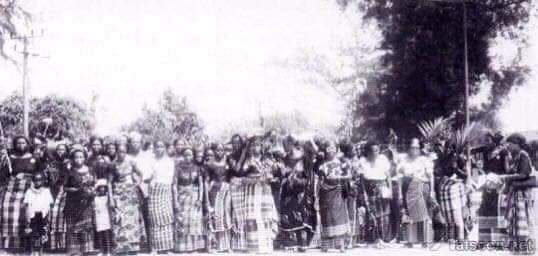Aba Women’s War of 1929 (Ogu Umunwanyi): A Turning Point in Nigerian Colonial History

Causes of the Aba Women’s War
The discontent that led to the Aba Women’s War was deeply rooted in the changing role of women under colonial rule. Traditionally, İgbo women had been active participants in governance and played significant roles in the marketplace. However, colonial authorities dismissed these roles, imposing a patriarchal system that excluded women from political power. Over time, increased school fees, corruption among native officers, and forced labour further fueled dissatisfaction among women.
The final spark came with the introduction of direct taxation. In 1927, the Native Revenue Ordinance was introduced, and by 1928, men in Eastern Nigeria were subjected to direct taxes. In September 1929, Captain J. Cook, an Assistant District Officer, initiated the process of revising tax rolls to include women, leading to widespread fears that women would soon be taxed.
On the morning of November 18, 1929—about 95 years ago—a man named Emereuwa, under the orders of his boss, Warrant Chief Okugo of the Aba District, walked into the compound of a widow named Nwanyereuwa. He instructed her to provide a census of her livestock and household, a move that would determine her tax burden under the British colonial government. Angered, Nwanyereuwa confronted him, asking, “Was your widowed mother counted?” This sparked a heated exchange, and Nwanyereuwa, filled with resentment, rushed to the town square to rally other women. With palm fronds in hand, they quickly mobilized more women. Thus began one of the largest uprisings against British colonial rule in Nigeria—the Aba Women’s Riot, also known as “The Women Who Went to War.”
The Oloko Trio and Leadership of the Protest
The leadership of the revolt in Oloko is attributed to three women known as the Oloko Trio: Ikonnia, Nwannedia, and Nwugo. These women were celebrated for their intelligence, persuasion, and ability to deescalate tensions during the protests. Their leadership helped maintain the protest’s non-violent nature, even in the face of military intervention. Another key leader was Nwanyereuwa, whose defiance of British taxation policies ignited the revolt.
Over 10,000 women participated in the revolt, with approximately 50 losing their lives. The resistance was led by four remarkable women:
- Persuasive Ikonnia
- Intelligent Nwannedia
- Passionate Nwugo
- Wise and strategic Nwanyereuwa
These women, along with others from six ethnic groups (Igbo, Ibibio, Andoni, Ogoni, Bonny, and Opobo), spearheaded the revolt. They destroyed colonial courts, banished Warrant Chiefs, and forced the British to abandon plans to impose taxes on market women. The revolt also significantly reduced the power of the Warrant Chiefs and created space for greater involvement of women in political affairs.
Legacy of the Aba Women’s War
The Aba Women’s War left a lasting legacy, inspiring later movements such as:
- The Tax Protest of 1938
- The Owerri and Calabar Oil Mill Protests of the 1940s
- The Onitsha-Aba Tax Revolt of 1956
These movements contributed to Nigeria’s eventual independence in 1960. Moreover, the Aba Women’s War paved the way for reforms, such as the abolition of the Warrant Chief system and the inclusion of women in local governance structures, setting the foundation for future struggles for women’s rights in Nigeria.





